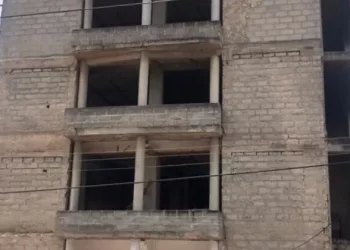Gun-related violence in Ghana rose dramatically in the first quarter of 2025, with the number of incidents more than tripling compared to the same period last year.
According to the First Quarter Open-Source Gun Incidence (OGI) Report released by the National Commission on Small Arms and Light Weapons, a total of 53 gun-related incidents were recorded between January and March 2025, up from 15 incidents during the same period in 2024—representing a staggering 253.3% increase.
The report offers a grim outlook on public safety and law enforcement effectiveness in the country, revealing a significant uptick not only in frequency but also in the geographic spread and diversity of gun-related crimes.
Ashanti leads as epicentre of violence
The Ashanti Region topped the list with the highest number of incidents, underscoring its growing reputation as a hotspot for firearm-related conflict.
It was followed closely by the North East and Northern Regions, which are also grappling with a mix of armed robbery, violent confrontations, and long-standing chieftaincy disputes—the three main drivers of the recent wave of gun violence.
These three categories alone accounted for over 60% of all incidents nationwide during the review period, underlining the deepening link between guns and socio-political unrest.
What’s more concerning is that gun violence was recorded in 15 out of the 16 regions across the country in the first quarter of 2025, compared to just nine regions in the same quarter of the previous year.
This dramatic expansion in geographic scope signals a national security threat that is no longer confined to traditionally volatile areas.
Men bear the brunt of gun violence
The report also detailed the human toll of the violence, showing that men constituted both the majority of perpetrators (59%) and victims (67%) of gun attack violence in the quarter.
Of the 72 deaths recorded during the quarter, 64 were men—a statistic that points to the gendered nature of violence in Ghana, particularly in the context of land conflicts, criminal networks, and political disputes.
Beyond fatalities, the Commission noted a worrying rise in other forms of gun misuse, including incidents related to land disputes, indiscriminate shootings, and celebratory gunfire, further illustrating the wider societal normalization of firearms.
Over half of guns unidentified
One of the most damning findings in the report was that 54% of the weapons recovered from crime scenes during the period were unidentified, making it nearly impossible for authorities to trace their origins or disrupt illicit arms supply chains.
This lack of traceability, according to the Commission, severely undermines law enforcement capacity, delays prosecutions, and increases the likelihood that more illegal weapons will continue circulating undetected within communities.
Legal vacuum and state implications
The report’s conclusions have significant implications for the Ghanaian state, particularly in the areas of public safety, national security, and law enforcement reform.
With a growing number of weapons in circulation and a sharp increase in violent crimes involving firearms, the state’s ability to maintain internal peace and safeguard its citizens is being increasingly called into question.
The expansion of gun violence into previously unaffected regions also raises red flags about the fragility of state authority in rural and peri-urban areas where land and chieftaincy disputes are rampant.
Additionally, the inability to identify over half of the recovered firearms points to major deficiencies in Ghana’s arms control regime, including loopholes in import regulation, poor monitoring of artisanal arms manufacture, and inadequate forensic capacity.
Urgent call for passage of National Arms Bill
In light of these escalating threats, the Commission has reiterated its long-standing appeal for the immediate passage of the Draft National Arms Bill into law.
The proposed legislation is expected to strengthen the legal framework for arms control, improve traceability, and provide more robust tools for law enforcement to counter illicit arms trafficking.
“The findings reinforce the urgent need for legislative action,” the Commission stated. “Without a comprehensive and enforceable legal framework, Ghana risks sliding deeper into a cycle of uncontrolled gun violence.”
The Commission is now urging Parliament, civil society organisations, and security stakeholders to collaborate in ensuring the Bill is fast-tracked.
The lack of such legal backing, it argues, undermines national cohesion and jeopardises the lives of citizens.











